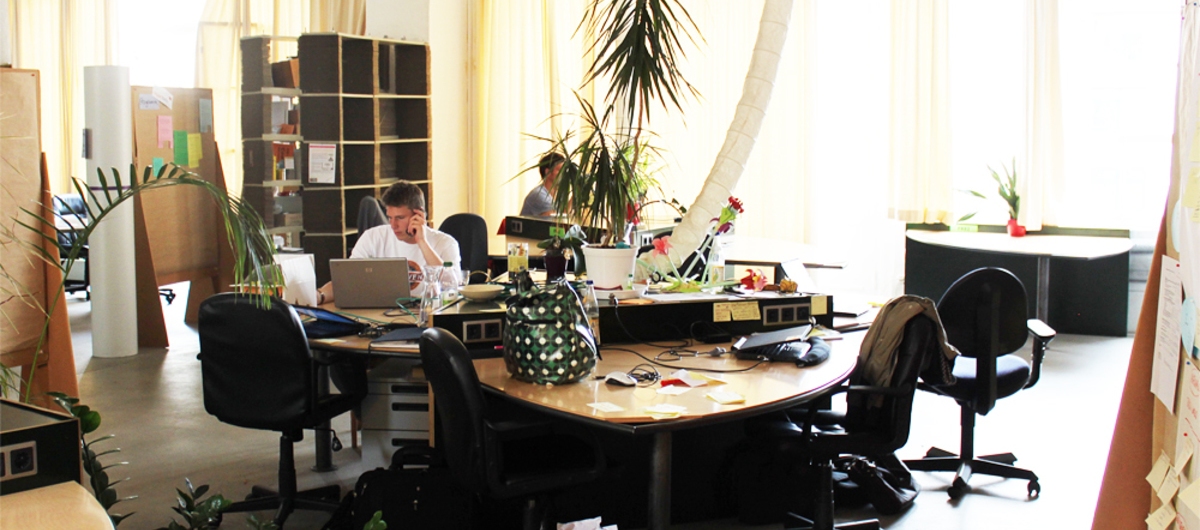Collaboration, the Individual the Problem of Groupthink in the Coworking Dreamscape
Andrew Keen, entrepreneur TechCrunch chat show host and web 2.0 critic believes that coworking is part of the same “social mania” that he critiques in his book Digital Vertigo: How Today’s Online Social Revolution is Dividing, Diminishing and Disorienting Us, released in May of this year.
The book is largely a critique of social media and web 2.0, but as coworking has grown out of Silicon Valley and from the exhaust of the digital revolution, his critique may have some relevance to coworking and the challenges which await. Keen writes about the decision to make Mark Zuckerberg Time Magazine’s '2010 Person of the Year.'
He quotes from Lev Grossman’s editorial explanation for this choice. “You’ll be working and living inside a network of people, and you’ll never have to be alone again. The Internet, and the whole world, will feel more like a family, or a college dorm, or an office where your coworkers are also your best friends.” While it sounds like a dream, Keen contends it may be a nightmare.
“Behind the communitarian optimism of the digital utilitarians lies a vertiginous and socially-fragmented twenty-first-century truth.” Says Keen “It’s a postindustrial truth of increasingly weak community and a rampant individualism... most troubling of all, it’s the antisocial truth of a socioeconomic world of increasing loneliness, isolation and inequality—a socially dysfunctional condition that Sherry Turkle describes as being ‘alone together.’”
Keen is not the only one raising the red flag. In her article Collaborative Work Spaces, Not All They Are Cracked Up to Be published in Atlantic Cities in January of this year, Alison Arieff writes “Being a part of group is awesome (go team!) but so is individual effort. The uncritical embrace of collaboration above all else can lead, as a social scientist at the SPUR panel remarked, to the reverse of what was intended: group-think, conformity, consensus for the sake of peace-making.”
To Be Alone or To Be Together
“Some of the same problems seen in traditional work environments can emerge within a coworking community” says Marla Gottshchalk, an organizational psychologist, coworker and person behind The Office Blend which was recently named one of Forbes’ top 75 career websites. “How a group handles differences in opinion and conflict between members is critical to a healthy working environment... allowing varying perspectives is key for any work group to develop effectively. This will help to inoculate a group against problems such as groupthink." So openness may be the key.
In a widely-read article published in the New York Times called The Rise of the New Group Think, Susan Cain writes “I call this the New Groupthink, which holds that creativity and achievement come from an oddly gregarious place. Most of us now work in teams, in offices without walls, for managers who prize people skills above all. Lone geniuses are out. Collaboration is in.” Cain contends that genius comes from solitude, quoting Steve Wozniak, the brilliant mind who worked quietly alongside Steve Jobs. “Work alone...” writes Wozniak “Not on a committee. Not on a team.”
“We need to move beyond the New Groupthink and embrace a more nuanced approach to creativity and learning” adds Cain. “Our offices should encourage casual, cafe-style interactions, but allow people to disappear into personalized, private spaces when they want to be alone.” It appears that the age old debate rages on... how to find the balance between the individual and the group. "We have to have accept ourselves as being human - we are social creatures after all. For some there can be an approach, avoidance gradient between solitude and community... coworking allows an avenue to find a perfect balance" says Gottschalk. Hillman agrees. “Balance,” he says “as always, is the correct answer.”
:::







